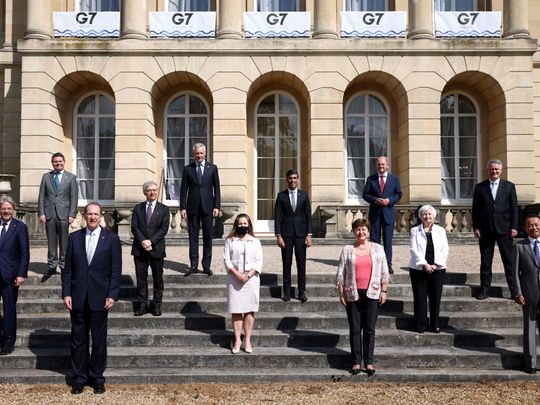
In a big move to tame big corporations and multi-national companies that dodge tax by shifting their businesses around the world, seven rich countries on Saturday announced a historic deal.
Finance ministers of US, the UK, France, Germany, Canada, Italy and Japan met in London and agreed on a minimum global corporate tax rate of 15 per cent, a move that is likely to hit tech giants like Google, Facebook and Amazon.
In simple terms, big corporates will now have to pay minimum 15 per cent tax in any of the G7 nations and European Union, wherever they are doing business by selling products and services. The tax will be imposed regardless of where they declare their profits.
This will prevent big corporations from dodging tax by setting up branches in countries with low corporate tax rate and pay tax at local rate even if they made profits from business elsewhere. This announcement is likely to help government collect billions of dollars in taxes and help them in post-pandemic recovery.
Imposing a cost on shifting business
The deal, coming after eight years of negotiations, may also put pressure on other countries, including China, Russia and Brazil, during G20 summit next month. The new deal will help governments to get more taxes from tech giants and impose a cost on shifting business to low tax havens.
In some ways, the G7 deal is the first organised attempt by developed countries to address corporate greed and lopsided distribution of wealth. Cash rich large corporations have huge financial resources and political muscle to shape government policies.
So far, they have managed to fatten their bank balances by exploiting holes in global tax systems. As the world begins to turn the tide on the pandemic, governments will require huge amount of money to rebuild economies and help populations impacted by economic misery, job losses and deaths.
The post-pandemic world cannot be the same as it was in the pre-COVID era. The pandemic has humbled rich nations and taught many lessons, a humbling episode that is telling us to change the way we have governed and lived so far.
Taking this deal further, the G7 countries must also address the greed of investment bankers who earn billions of dollars in bonuses and contribute to lopsided distribution of wealth.
The nations will take years if not decades to recover from the pandemic and rebuild economies ravaged by lockdowns and widespread deaths.
The developed nations have a big responsibility to lead by example, help poor countries and heal the world.





